Clever brands have seized the opportunity to market green superfood powders to health-conscious consumers who want to increase their vegetable intake because they’re afraid they’re not getting enough nutrients through regular food.
Green powders promise to fill that gap by delivering the recommended daily serving of vegetables through the convenience of a drink.
The premise of liquid superfood sounds exciting and almost too good to be true. Unfortunately, there are a lot of misconceptions surrounding such products, and most of them aren’t as healthy as their labels claim.
The purpose of this article is to take a closer look at these chlorophyll-rich powders and to provide answers to a number of common questions, including:
- Are these supplements as nutritious as real food?
- Can green drink powders improve athletic performance and improve your energy levels?
- What should you look out for in green powders?
- What are the health benefits of liquid veggies?
- Are there potential side effects to “drinking” vegetables?
- What is the best green powder?
- Why are most greens food powders contaminated with heavy metals?
- What are healthier alternatives to green superfood powders?
So stick with me as we explore everything you need to know about superfood powders.
What Is Green Food Powder?
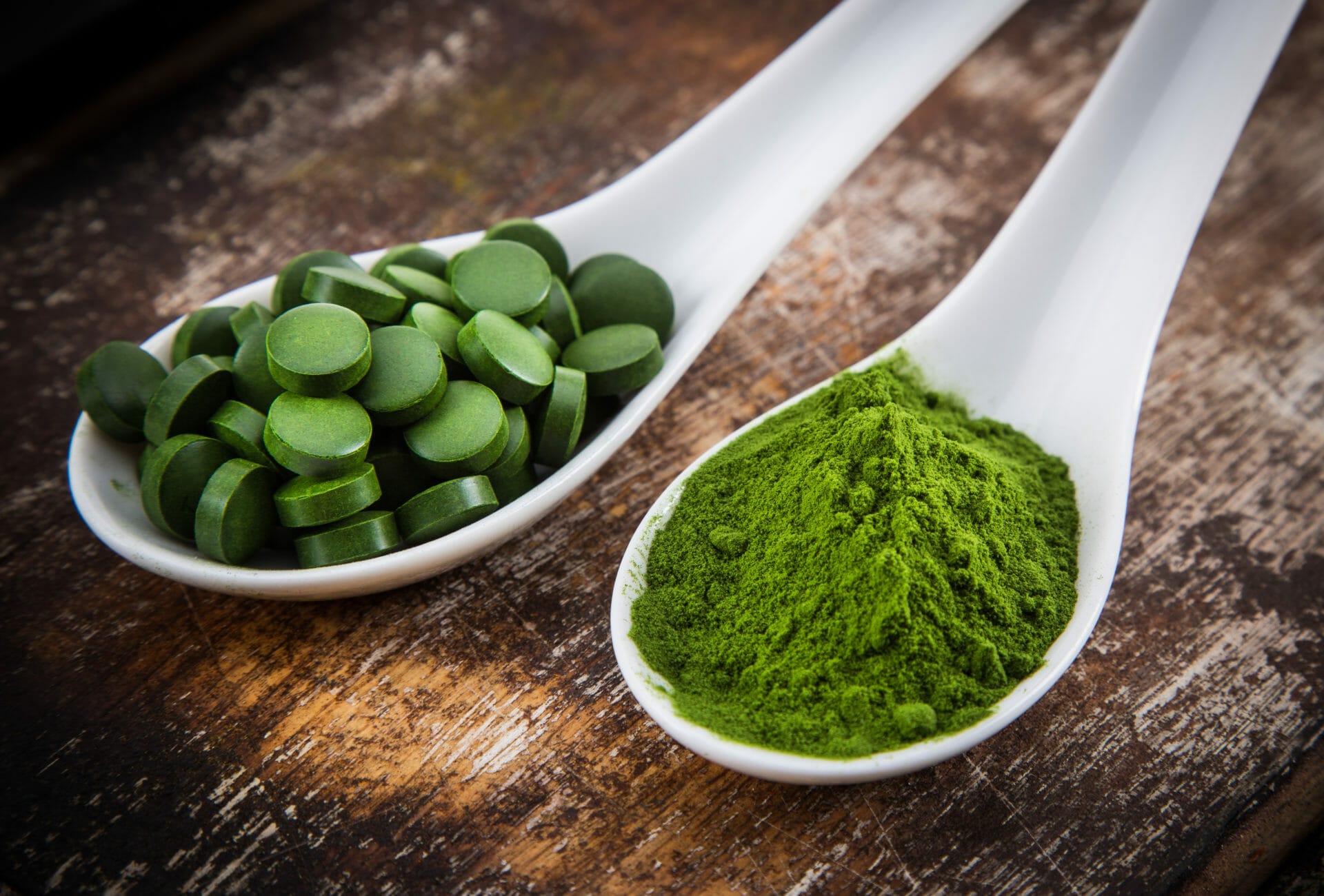
Green powders are dietary supplements consisting of powdered fruits, vegetables and other plant-based compounds that can help you pack more nutrients into your regular diet.
All you have to do is mix a scoop of the powder with a few ounces of water, nut milk or your favorite protein shake.
Manufacturers of green powders claim that their products can help you detox, reduce the risk of developing chronic diseases, improve your energy levels and mental clarity, support your immune system, lose weight and more.
So let’s learn more about the potential benefits of green powders and find out if there’s sufficient scientific evidence to back up those claims.
But before we get into the weeds, let’s talk about how these products are manufactured and what types of green powders you can find on the market.
How Are Green Powders Made?
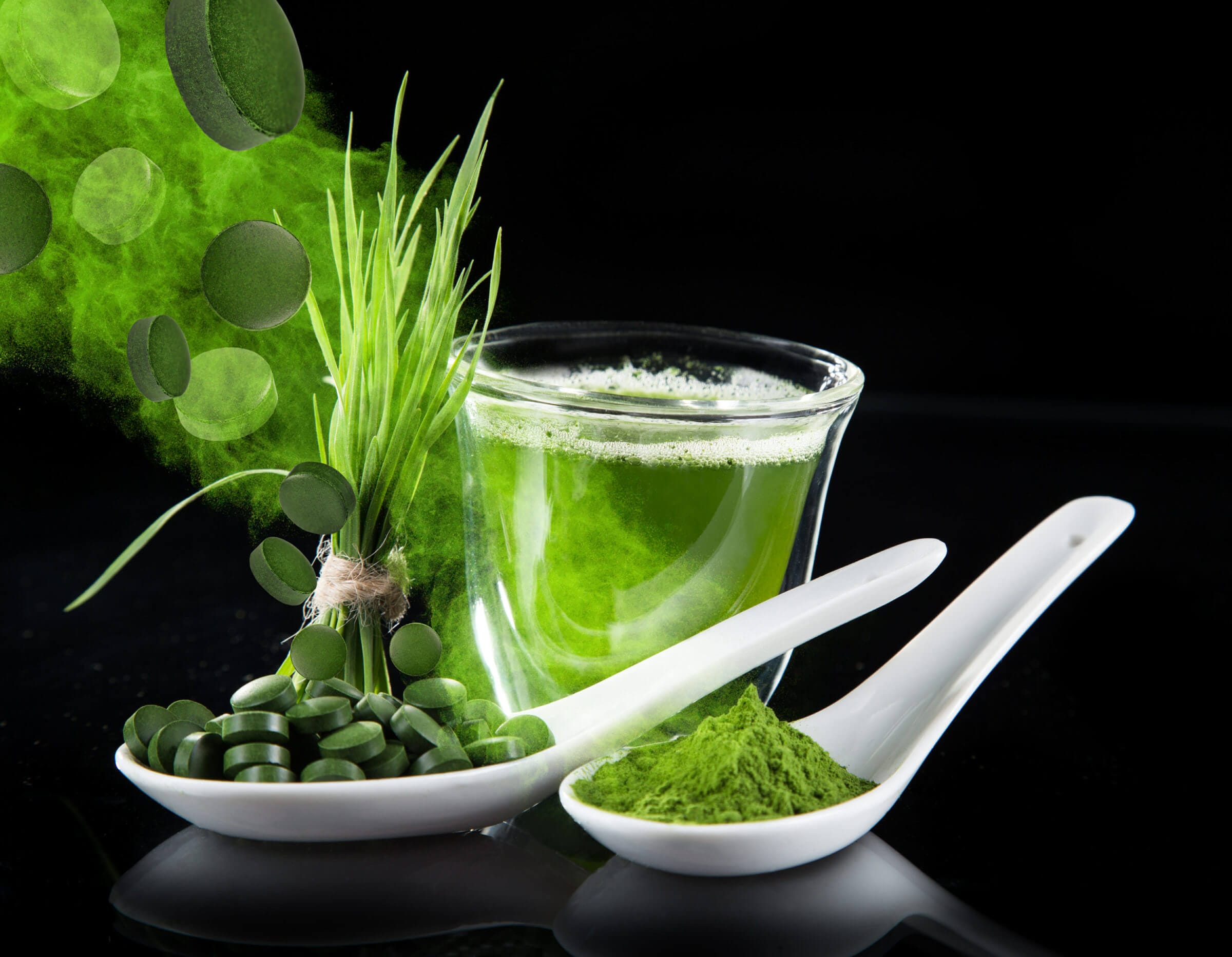
A common technique for making green powders is to dry the ingredients and then grind them. In some cases, manufacturers first extract the juice of plants (juicing) and then dry the juice to make it into powder.
There are different drying techniques, and each comes with its own pros and cons.
These techniques include:
- Air drying
- Freeze drying
- Spray drying
You can read this article if you’re interested in learning the details of, and differences between, these methods. But in a nutshell, freeze drying uses low temperatures and thus preserves the nutrients in food much better than spray drying or air drying. It’s also more expensive.
While air drying sounds natural and relatively straightforward, it also uses higher temperatures (which can destroy some of the nutrients in the food).
As a result, I’d stick with green powders from brands that use freeze-drying during their manufacturing process.
There is also a new trend of sprouting and fermenting ingredients, which can remove some of the antinutrients commonly found in plants.
That helps with improving the absorption rate of micronutrients. We’ll get more into that in a bit when we talk about “superfoods,” so stay tuned.
Popular Green Powder Ingredients
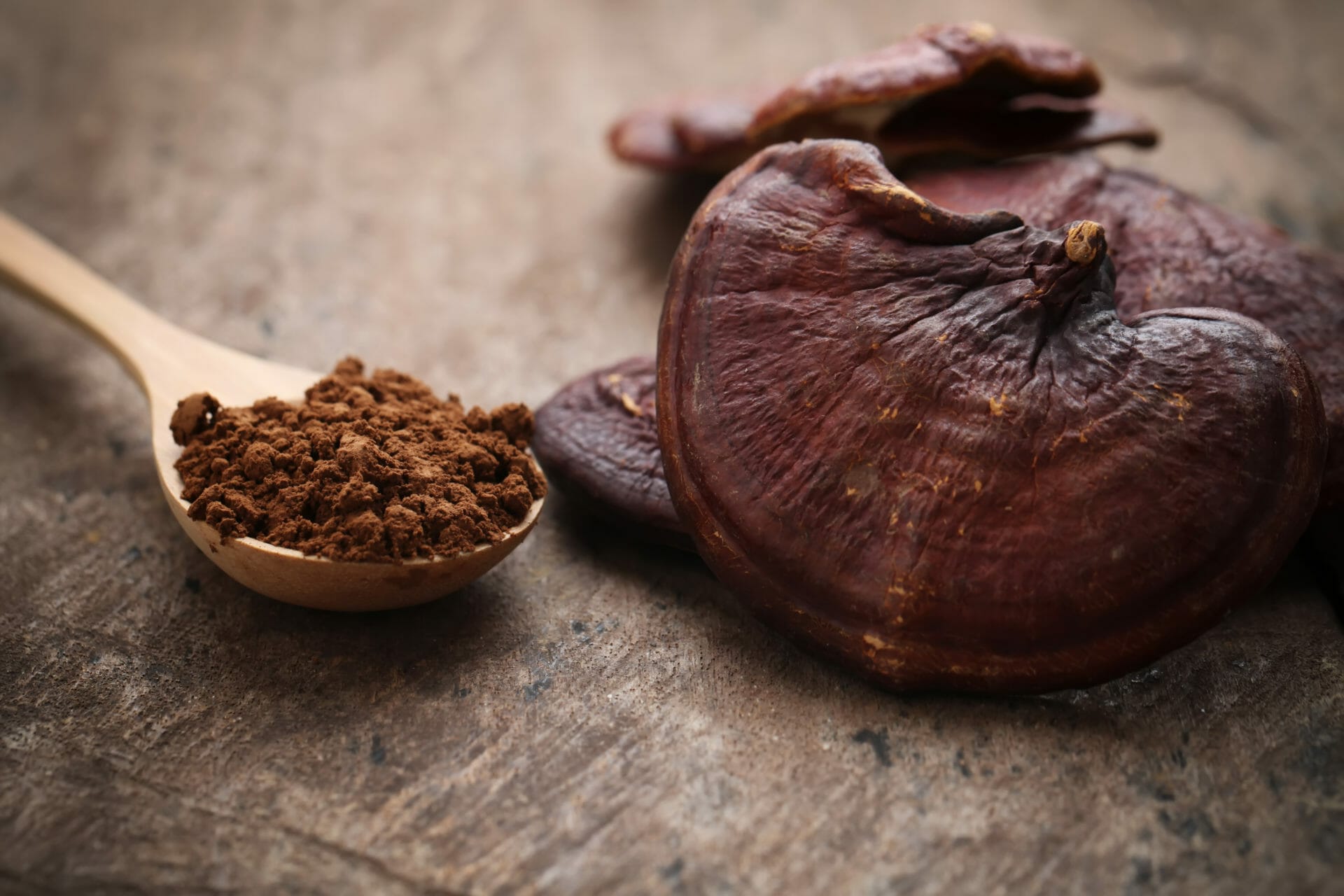
Green powders often contain 20 to 75 different plant-based ingredients, but the exact number varies by brand.
Common ingredients include:
- Antioxidant-rich fruits and leaves such as blueberries, citrus bioflavonoids extracts, goji berries, moringa, pineapple and raspberries.
- Digestive enzymes such as astragalus root powder extract, bromelain and burdock root powder.
- Extracts such as green tea extracts (including matcha), cocoa bean polyphenol extract, grape seed extract and ginkgo biloba extract.
- Grasses such as alfalfa grass, barley grass, oat grass and wheatgrass.
- Leafy greens such as kale and spinach.
- Mushrooms such as maitake mushroom extract, reishi mushroom extract and shiitake mushroom extract.
- Natural sweeteners such as monk fruit extract or stevia.
- Nutrient-packed veggies such as broccoli, cabbage, carrots and red beets.
- Prebiotics and fiber such as apple fiber, inulin (from artichokes) or tapioca starch.
- Probiotic bacteria such as bifidobacterium bifidum and lactobacillus acidophilus.
- Seaweed such as chlorella, kelp and spirulina.
Types of Superfood Powder
If you walk through the supplements aisle of your local Whole Foods Market, or search on Amazon, you’ll find countless plant powders to choose from. So let’s talk about some of the different types of superfood powders.
While this article focuses primarily on dried superfood powders, which consist of a mix of different plants (green and otherwise), you can also find powdered versions of individual fruits, veggies, roots and mushrooms.
For example, for my testing I got a container of organic moringa leaf powder. It’s a plant native to South Asia and its leaves have been used in Ayurvedic medicine for at least 4,000 years.
What to Look for in a Greens Powder
Considering the overwhelming amount of products on the market, let’s look at some of the key requirements you should have when it comes to green powders.
By applying these requirements, you can quickly weed out unhealthy or ineffective products and focus on those that provide the most potential benefits.
Look for
- Organic and non-GMO
- Freeze-dried
- Naturally sweetened
- Dairy-free probiotics
Avoid
- Added sugar
- Grains and soy
- Artificial ingredients
- Fillers
- Chemicals
Ingredient Quality
When it comes to green powders, ingredient quality is just as important as when you’re shopping for fresh produce.
That’s why I recommend sticking with brands that only use organic and non-GMO ingredients that have been carefully processed using a freeze-drying or cold-pressing method.
Avoid any products that include cheap fillers like wheat, corn, soy, unnecessary starches or other artificial ingredients.
Sweeteners
As a rule of thumb, I avoid products that include added sugars.
The problem is that nutritive sweeteners exist under dozens of different names, including fructose, maltodextrin, dextrose, rice syrup, corn syrup and others. So it’s not always easy to identify added sugars in processed foods without reading the label very carefully.
In addition to nutritive sweeteners, I also stay away from artificial sweeteners that don’t have any calories, such as sucralose.
The few exceptions to this rule are stevia leaf extract and monk fruit extract, because they’re from truly natural sources.
Chemicals

This one seems like a no-brainer, but the reality is that almost all fresh produce contains trace levels of heavy metals and other chemicals from the soil and water. As a result, so do organic green powders.
California has established a law known as the Safe Drinking Water and Toxic Enforcement Act (commonly referred to as Proposition 65).
The law requires manufacturers of supplements to add a “Prop 65” warning on a product label if the product in question contains any ingredient that tests over 1/1000th of what the World Health Organization terms as “Safe Harbor Levels.”
Virtually all green powders violate those limits. Whether or not you see a warning on the label depends on where you live. If you live outside of California, you might not see such a warning, because manufacturers use different (less scary) packaging for those markets.
Considering that natural plants grown in “clean” soil (such as spinach) contain higher levels of chemicals than California’s law allows, you might consider ignoring such warnings altogether.
I don’t recommend that. Instead, look for products that have been third-party tested for heavy metals and make sure they contain the lowest amount possible. For instance, Athletic Greens and Ketōnd test their products.
Ketōnd wrote an excellent article on the subject explaining how the company handles testing for heavy metals.
Why “Superfoods” Is a Misnomer
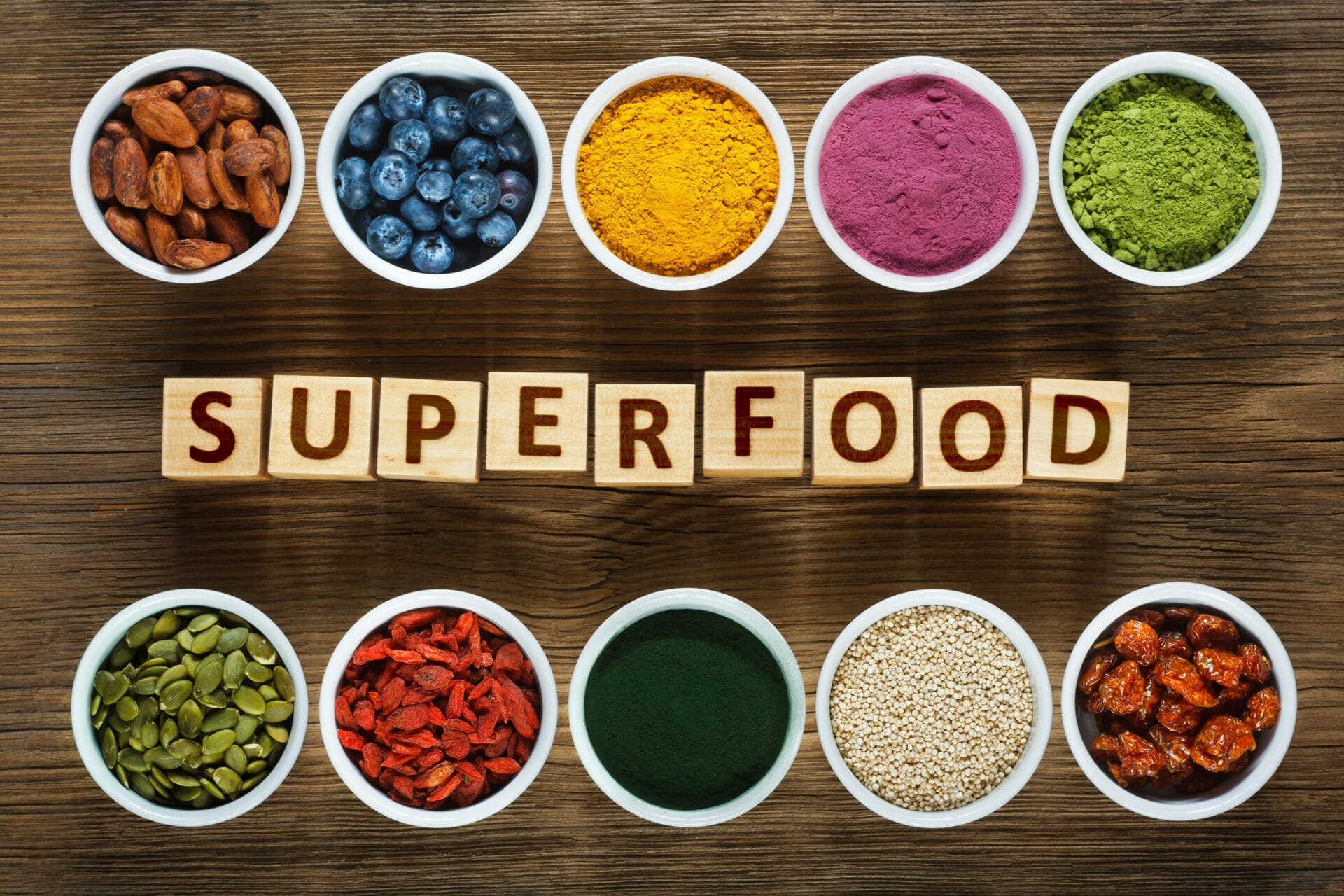
You’re probably familiar with the term “superfoods,” which describes foods that are incredibly nutrient-dense. The assumption is that the more nutrients a food packs, the healthier it is.
Examples of “known” superfoods include chia seeds, dark leafy greens, most berries and blue-green algae.
Here’s the problem: the superfood label is bullshit. Nutritionally, there is no such thing as a superfood. At least, not in the plant kingdom.
In fact, many of the so-called superfoods include (natural) compounds that are either inflammatory or which hamper the absorption of other nutrients.
For example, many dark leafy greens, including Swiss chard and spinach, contain antinutrients (such as oxalates) that significantly reduce the food’s nutritional value by hampering mineral absorption.
Also, studies have shown that vitamin A is 15 to 20 times more bioavailable in meat than in plant sources, while iron is three times more bioavailable in meat than in plants.
That’s why I don’t like the label “superfoods.” What good is a nutrient-dense plant food if the body can’t absorb most of it? Even worse, most of these “superfoods” are detrimental to your health.
That’s why, at the end of 2020, I switched from using green powders to freeze-dried beef organ supplements to bridge any nutritional gaps I might have in my diet. (I also stopped eating most vegetables.)
That doesn’t mean high-quality food powders don’t deserve your consideration. Just don’t expect miracles from individual ingredients.
Who Should Use Green Powders?

In my opinion, you should do everything you can to fulfill your body’s nutritional needs with pastured (organ) meats, wild-caught seafood and the least-toxic organically-grown fruits and vegetables, such as berries, avocados, bananas or peeled and deseeded squashes.
Unless you’re on a 100% plant-based diet, I’d also recommend considering freeze-dried organ meat supplements — and liver in particular.
If consuming animal products is not your cup of tea, green powders can potentially help to fill dietary gaps. But don’t mistake green powders or other supplements as a replacement for real food.
You can also learn more about why veggies aren’t as healthy as they’re cracked up to be in the video below.
Purported Health Benefits of Green Powders
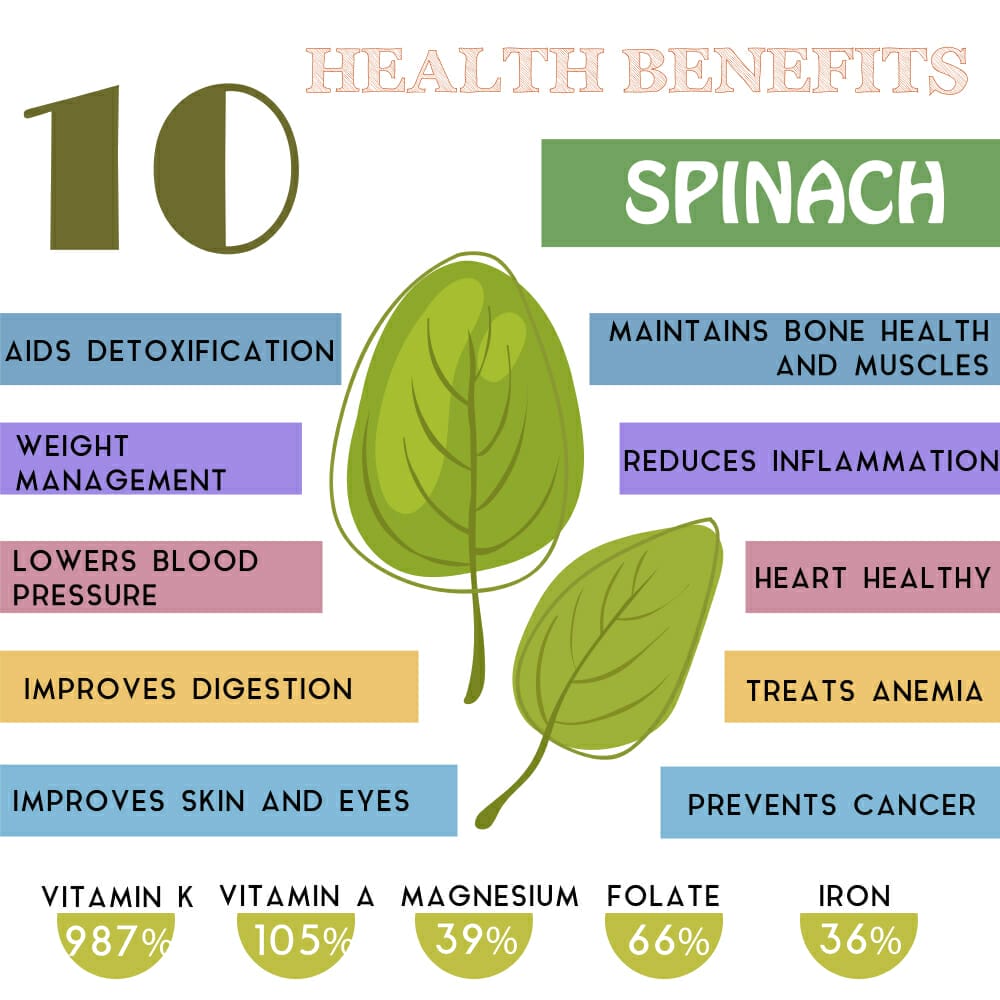
There are two ways of looking at the benefits of green powders. Some sites, such as Healthline, list the scientifically-relevant benefits of individual ingredients you can commonly find in green powders.
Such benefits include:
- Reduced oxidative stress and inflammation, thanks to the actions of plant compounds. That may reduce your risk of developing a chronic disease, such as cancer or heart disease.
- Improved energy from ingredients such as green tea extract, which is a natural source of caffeine.
- Detoxification, by including alkaline plant compounds or alkalizing greens that are supposed to increase your blood pH. (Note: You cannot influence your blood pH with food.)
- Weight loss, by controlling your appetite and blood sugar levels.
The reality is that most of these claims stem from poorly-designed or observational studies that don’t necessarily prove cause and effect.
That’s why I think it’s a waste of time going down the rabbit hole of trying to match individual ingredients to health benefits.
Instead, focus on the bigger picture. I hope we can all agree that our bodies need nutrients and the best source of such nutrients is fresh food (ideally from animal sources).
If you feel like you’re already doing the best you can and it’s still not good enough — maybe because of lifestyle factors that are difficult to influence — consider using supplements such as desiccated organ meats (or green powders, if you’re vegan).
I work out five or six times a week, and I have a stressful job and two kids who demand my constant attention. To meet those demands and to excel at what I do, I maintain an excellent sleep regimen, follow a Paleolithic ketogenic diet and intermittently fast.
Additionally, I use supplements such as grass-fed beef liver capsules to fill any potential gaps — especially those I might not be aware of.
Frequently Asked Questions
No, not all of these products are vegan-friendly because some contain vitamins that were derived from animal-based sources. So unless the label says “vegan,” you can’t be certain that the product doesn’t contain any ingredients from animals.
While I don’t argue that some plants have a place in the human diet, evolution doesn’t back up the hypothesis that plants are the better source of nutrients for humans. In fact, there’s plenty of evidence suggesting that humans can absorb micronutrients from animal products at a much higher rate than they can from plants.
The Standard American Diet is among the worst things you can do to your body, as is evidenced by the exploding rates of metabolic diseases in this country.
A plant-based diet, such as a vegan diet, is often “less bad” because (among other things) vegans are usually more health-conscious and pay better attention to food quality.
However, just because a diet is “less bad” doesn’t make it good. From both an evolutionary and scientific perspective — I’m talking about clinical trials and not observational studies — the human body isn’t made for eating only plants.
But that’s an entirely different discussion and a subject for another blog article.
If you follow the Standard American Diet (SAD), have an inconsistent sleep cycle, don’t exercise and have no plans or desire to change these behaviors, I’d consider supplementing with a green powder to be a colossal waste of money.
Free radicals are atoms or molecules that are highly reactive because they’re missing an electron. In your body they can damage cells, and they’re linked to aging. Their counterparts are antioxidants that chemically react with those free radicals to “neutralize” them.
ORAC means oxygen radical absorbance capacity, and it was a method of measuring the antioxidant capacity of different foods. The USDA even used to publish a database of foods and their ORAC score.
Unfortunately, marketers abused those scores to make up claims about health benefits that had no scientific basis. So, if you see a product boasting a high ORAC score, just ignore it.
Are Greens Supplements Worth It?
The highest quality green powders don’t come cheap because they’re expensive to manufacture. So the question remains if it’s worth spending $50 to $90 dollars every month on a green powder. In comparison, a high-quality beef liver supplement costs less than $40 for a 45-day supply and contains most of the nutrients you need in a more bioavailable and absorbable form.
So in my opinion, green powders aren’t worth it, unless you’re on a vegan diet.
Final Words on Green Powders
I recently read a statement in the new book Keto Answers that if you’re concerned about not getting enough micronutrients from food, you should eat more meat. That sounds corny and funny (not to mention disturbing if you’re a vegan), but it’s absolutely true.
The caveat to that statement is that the parts of animals that are most nutrient-packed are the organs. And most of us don’t eat nearly enough organ meat. When was the last time you had heart, liver, kidney or spleen on your plate?
That’s where seasonal fruits and some of the least-toxic vegetables come into the picture.
But as I mentioned above, the nutrients in plants are notoriously hard to absorb. And unlike gorillas, who spend half of their day gathering and eating plants, I have neither the time nor the desire to sit around chewing plants for hours to get the nutrients I need.
In the past, that’s the gap I believed green powders could fill by providing a convenient delivery mechanism for micronutrients. These days, I recommend organ meat supplements over green powders for all the reasons I outlined in this article.
What’s your take on greens supplements? Do you use them? And, if so, what’s your favorite brand? Let me know by leaving a comment below.

Michael Kummer is a healthy living enthusiast and CrossFit athlete whose goal is to help people achieve optimal health by bridging the gap between ancestral living and the demands of modern society.
Medical Disclaimer
The information shared on this blog is for educational purposes only, is not a substitute for the advice of medical doctors or registered dieticians (which we are not) and should not be used to prevent, diagnose, or treat any condition. Consult with a physician before starting a fitness regimen, adding supplements to your diet, or making other changes that may affect your medications, treatment plan or overall health. MichaelKummer.com and its owner MK Media Group, LLC are not liable for how you use and implement the information shared here, which is based on the opinions of the authors formed after engaging in personal use and research. We recommend products, services, or programs and are sometimes compensated for doing so as affiliates. Please read our Terms and Conditions for further information, including our privacy policy.
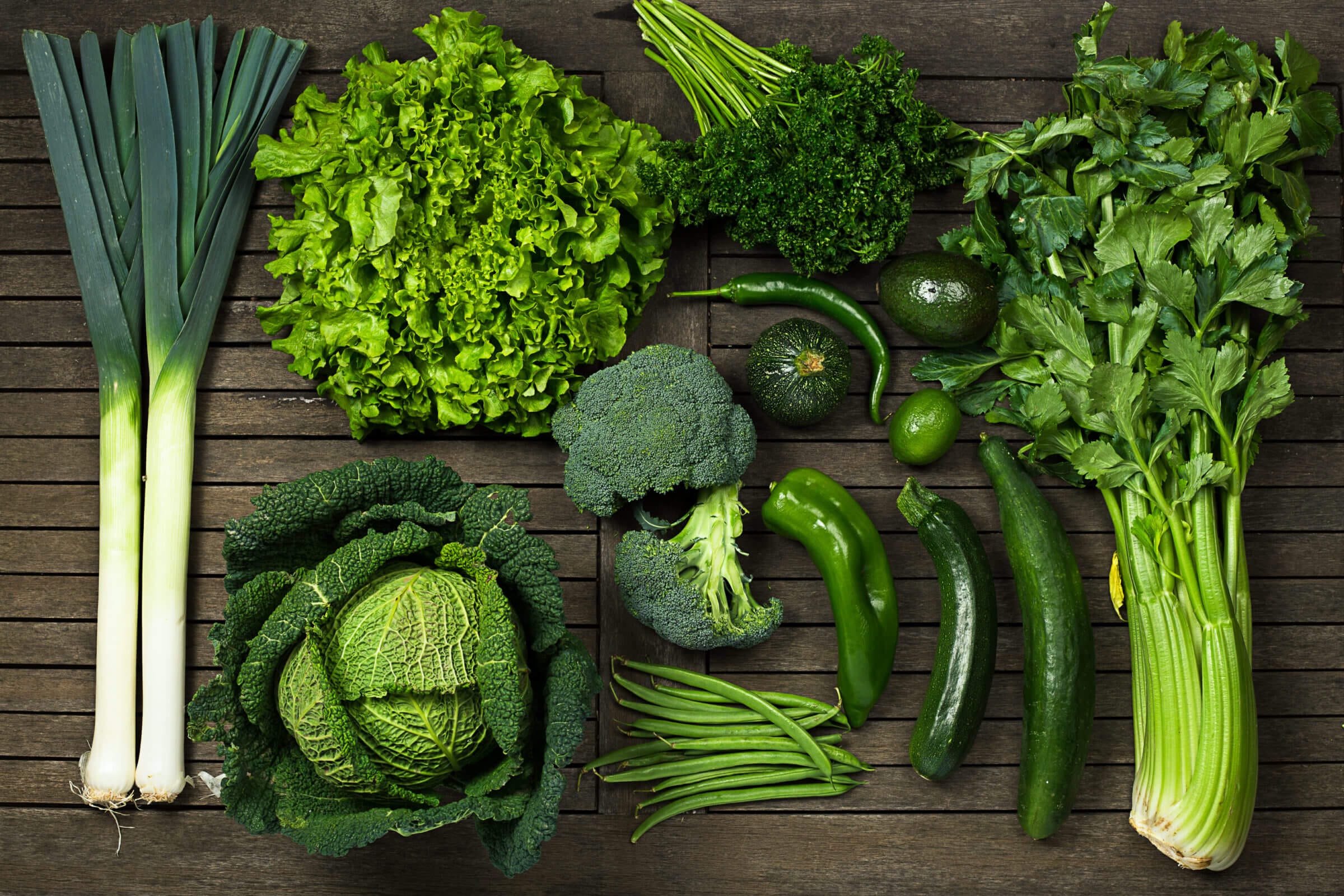

Your promoting your own ideas that are based upon your own life style and that’s cool but you are not the only person out there promoting their own ideas. So have your organ sandwich.
I don’t eat bread for many of the same concerns I have over greens.
Great article! I’m late in responding to it, but loved it. For all the vegans who quoted the “Bible”. Look again after the flood when God deemed meats okay to eat for everyone. Then He went on to set His people apart and in Deuteronomy told the Israelites which ones were now deemed clean and unclean. (Not for salvation, but for the health benifits, so that they would be healthy for their journey to the Promised Land) Science has proven that those foods that God deemed unclean are in fact either harder to digest, the first ones to cause food poisoning, and the clean meats and foods are the ones that have kept the USA, Israel, and other developed countries thriving. Meats are healthy for the brain and provide a lot of protein. It’s when we rely too much on one type of food or one kind of food that we develop vitamin and mineral deficiencies. Balance is key. Supplements are usually only necessary when we do not eat a variety of foods, or if we have a chronic condition.
I love the steps you gave for people to follow before you would suggest a powder. Quality of life is key to health as well. Our food supply too, has been compromised a bit and our “whole grains” aren’t actually whole anymore, so a green powder that has extra plant fiber is not a bad thing. As well, ground flax added to your breakfast of oatmeal will do the trick as well. I think your article is one of the best ones I’ve seen about green powders. Thank you for sharing!
Thanks for answering, after reading this i wont bother trying these powders. I was looking into them cause I travel a lot. But otherwise eat good amounts of veggies, I blend massive amounts at a time and pour into these freezable pouches that I can just grab n go, they got cute lil straws. like you said aint nobody got time to sit around chewing em. I cant comprehend the vegetarian thing, every body is different, but i think i would die without meat.
Hey Heetlee,
You might want to consider looking into freeze-dried beef liver supplements. All the nutrients without the hassle or taste :)
Check out: https://shop.michaelkummer.com/products/freeze-dried-beef-liver
Cheers,
Michael
Thank you for the in-depth dive into green drinks. I use Green Vibrance and it gives me energy and excellent digestion. We’re Seniors & I strongly recommend green drinks. Appreciate your take on meat and your moderation in defending eating it! Neither my husband and I eat meat or chicken, but get our complete proteins with fish and seafood.
You know your subject. Thankyou.
Michael Kummer A really interesting item and loved your answers got a new follower .
Can you share your favorite brands? I like to read and then easily buy!
Hi Shelley,
please see https://michaelkummer.com/best-green-powders/
Cheers,
Michael
i came here to read about greens powder not your fear of carbohydrates and vegans :/
If that’s all you got out of my post, then I’m sorry but can’t help you :)
I wouldn’t know how to respond to Adam and Eve creeping onto a nutrition article either.
Greens powders contain high levels of vitamins and minerals associated with maintaining a healthy immune system. Vitamin A has anti-inflammatory properties that enhance immunity. For example, Selenium is found in most greens powders, and is proven to help the immune system fight infection.
Wonderful article but I was hoping to find information regarding green powders and those who need to watch oxalates and lectins. I wonder if these powders have about the same, more, or possibly fewer oxalates and lectins due to processing?
Hi Donna!
I think everybody should be watching their antinutrient intake :)
But to answer your question, no I don’t think freeze-drying vegetables (like they do for green powders) reduces their antinutrients.
I suggest switching to grass-fed beef liver — either fresh or as capsules — to cover your micronutrient requirements. See https://michaelkummer.com/beef-liver-supplements/
Completely discredited yourself when you made the claim that veganism isn’t healthy, and then cited keto as a great choice. Do better research and avoid reading things that simply back up your preexisting opinion. The vegan diet, done correctly, consciously, is among the healthiest of diets on the planet. Meat is entirely unnecessary—and in the way/quantity in which most Americans consume it—actively a detriment to ones health.
2.6 million years of evolution and numerous meta-analysis of clinical trials might disagree with you, Farrah. The good news is that most of us live in countries where they can freely choose what they put into their bodies. So if you believe that a plant-based diet that’s free of meat works best for you, then go for it :)
Plant based will be ahead as the superior diet when continued research is conducted over the long term. We’re made for plants
You might have to take another look at human evolution to realize that’s not the case.
If you believe in evolution. I believe in God and the Bible. In the garden of eden there was only fruit and vegetables. The animals were tame and Adam and Eve enjoyed them as pets, even lions. God only gave in and let the Israelites eat meat because they constantly complained they couldn’t. So, I believe God intended for us to be vegetarians. After all he fed the Israelites mana in the dessert for years. Mana is bread, not meat.
I don’t know how to respond to that. But I guess, if it makes you happy, continue eating your peanut butter and jelly sandwich.
Farrah, you are 100% correct! It’s been proven over and over. Plant Based is even superior!